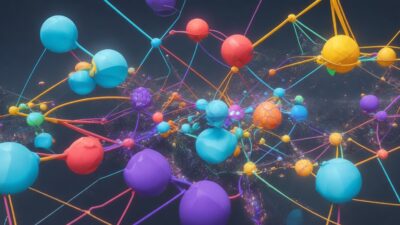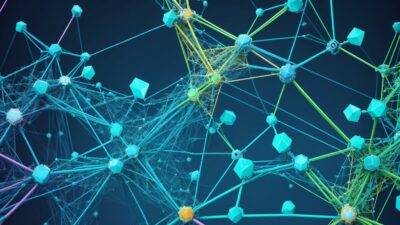Innovative Approaches to Treating Rare Diseases: Blockchain and AI Pave the Way for Life-saving Therapies

Introduction
While rare diseases affect a small percentage of the population, they can have life-altering consequences. The development of treatments for these conditions has been historically hindered by limited resources and scarce occurrences. However, recent advancements in blockchain and artificial intelligence (AI) technologies are changing the healthcare landscape and fostering the creation of innovative therapies to save lives. In this article, we delve into how blockchain and AI are revolutionizing the treatment of rare diseases.
Encouraging collaboration in research with blockchain and AI
Blockchain and AI are reshaping the way researchers collaborate by providing a secure, transparent platform for data and research findings exchange. By pooling expertise and resources, scientists can identify new therapeutic options for rare diseases more effectively.
Improved diagnostics using AI-based analyses
Diagnosing rare diseases often poses challenges due to the lack of specific tests and the wide range of symptoms. AI-powered analysis of medical data, including genomic sequencing and medical imaging, can help healthcare professionals recognize patterns and markers associated with rare diseases. Consequently, patients may receive more accurate and prompt diagnoses, leading to earlier access to appropriate treatments.
Personalized treatment development through AI and blockchain
By harnessing patient data, such as genetic information and medical history, AI and blockchain can facilitate the creation of individualized treatments for rare diseases. This allows healthcare providers to devise treatment plans that take into account each patient’s unique circumstances, potentially increasing treatment effectiveness and minimizing side effects.
Streamlining clinical trials with blockchain and AI
Clinical trials play a crucial role in the development of new therapies but can be costly and time-consuming. Blockchain and AI technologies can significantly enhance the clinical trial process by effectively organizing data, swiftly identifying suitable participants, and automating result analysis. As a result, the development of new therapies can be expedited, and the costs associated with conducting trials can be reduced.
Creating digital medical data repositories and fostering global collaboration
By developing digital databases for rare diseases and their treatments, scientists and physicians can access information and collaborate with colleagues across the globe more efficiently. Blockchain and AI offer a secure, dependable environment for storing and sharing medical data, encouraging international cooperation in rare disease treatment research.
Conclusion
Blockchain and artificial intelligence are driving a new era in rare disease treatment, accelerating the discovery of groundbreaking therapies and decreasing research costs. Harnessing these technologies for collaborative research, diagnostic advancements, personalized treatment development, and clinical trial optimization can lead to significant progress in combating rare diseases and saving lives.




